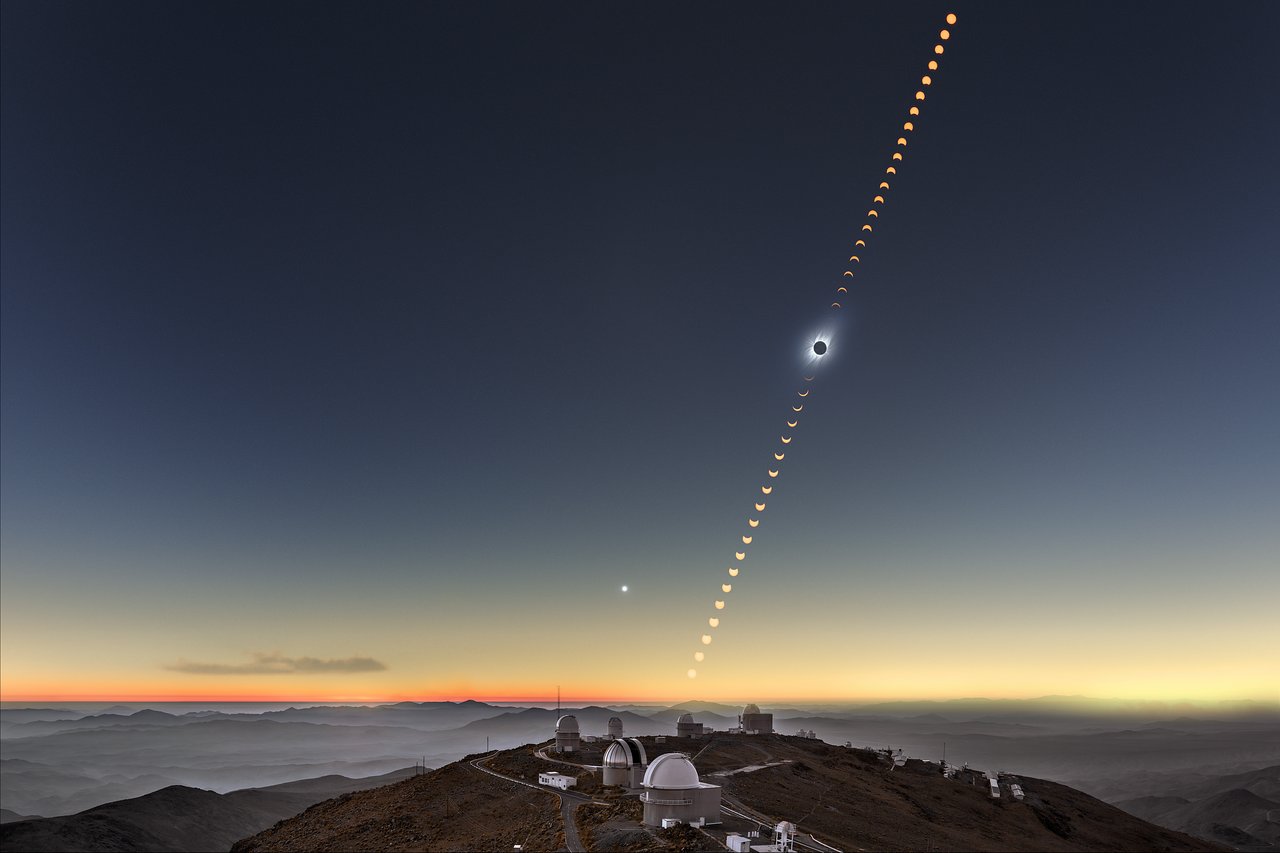Solar Eclipse 2019 in Chile: Chasing Totality in the Atacama Desert
A travelogue of one Space.com reporter's journey to see the total solar eclipse of July 2, 2019.

To watch the total solar eclipse of July 2, 2019, I set out to the Atacama Desert in Chile, where totality will make its first landfall in South America.
On the day of the eclipse, I'll be making the 90-mile (150 kilometers) drive up from La Serena, Chile to the La Silla Observatory, the European Southern Observatory's (ESO) oldest telescope facility, where thousands of visitors will congregate to watch the moon cross in front of the sun.
This isn't my first total solar eclipse — but I am hoping it will be my first time seeing totality! For the Great American Solar Eclipse of Aug. 21, 2017, I traveled to Nashville, Tennessee, where one very obnoxious cloud stole the show right before totality. The weather forecast for this next eclipse seems promising, but I'm keeping my fingers crossed!
You can read about my eclipse-chasing adventures in Chile in my travelogue below. I will post updates periodically (WiFi permitting) during the days leading up to the eclipse and on the big day itself.
Related: Total Solar Eclipse 2019: A Complete Guide
Editor's Note: If you snap an amazing picture of the July 2, 2019 total solar eclipse and would like to share it with Space.com's readers, send your photos, comments, and your name and location to spacephotos@space.com.
- Total Solar Eclipse 2019: Path, Viewing Maps and Photo Guide
- Total Solar Eclipse 2019: Video Streams and Webcasts to Watch Live
- Amazing Solar Eclipse Pictures from Around the World
Email Hanneke Weitering at hweitering@space.com or follow her @hannekescience. Follow us on Twitter @Spacedotcom and on Facebook.
Get the Space.com Newsletter
Breaking space news, the latest updates on rocket launches, skywatching events and more!
Join our Space Forums to keep talking space on the latest missions, night sky and more! And if you have a news tip, correction or comment, let us know at: community@space.com.

Hanneke Weitering is a multimedia journalist in the Pacific Northwest reporting on the future of aviation at FutureFlight.aero and Aviation International News and was previously the Editor for Spaceflight and Astronomy news here at Space.com. As an editor with over 10 years of experience in science journalism she has previously written for Scholastic Classroom Magazines, MedPage Today and The Joint Institute for Computational Sciences at Oak Ridge National Laboratory. After studying physics at the University of Tennessee in her hometown of Knoxville, she earned her graduate degree in Science, Health and Environmental Reporting (SHERP) from New York University. Hanneke joined the Space.com team in 2016 as a staff writer and producer, covering topics including spaceflight and astronomy. She currently lives in Seattle, home of the Space Needle, with her cat and two snakes. In her spare time, Hanneke enjoys exploring the Rocky Mountains, basking in nature and looking for dark skies to gaze at the cosmos.









